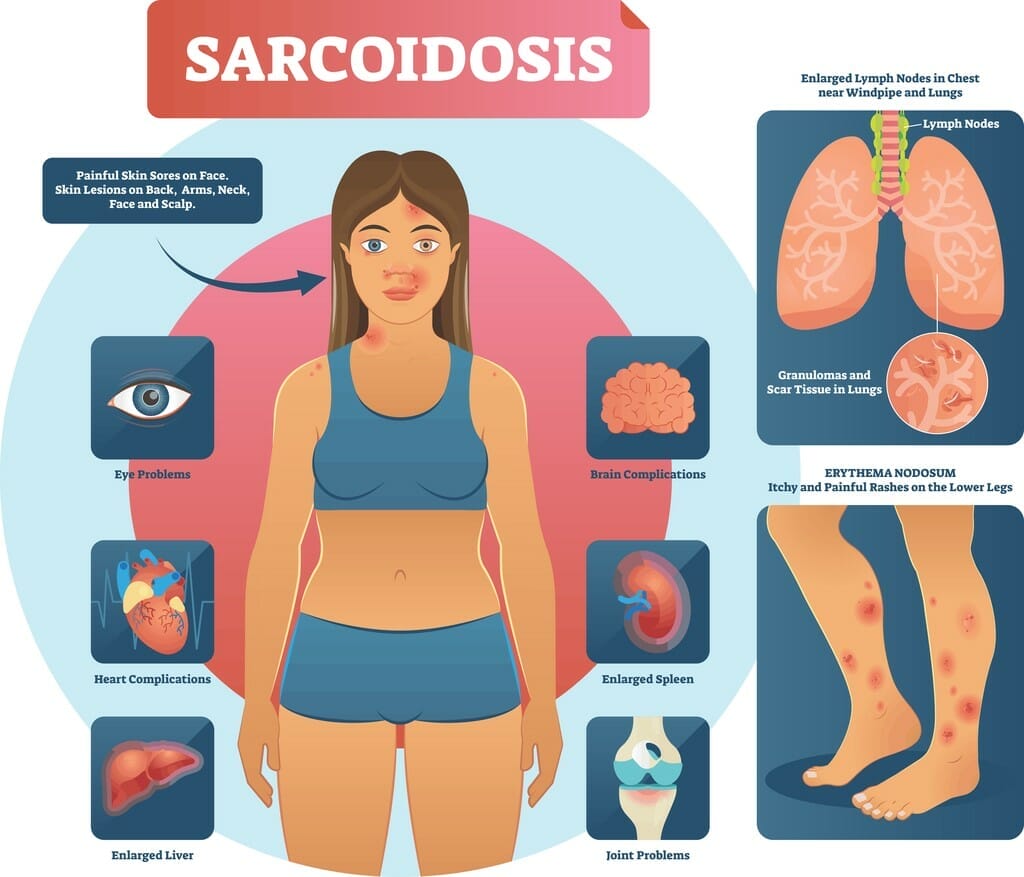Sarcoidosis
What is sarcoidosis?
Sarcoidosis is a condition involving the development of granulomas. Granulomas are clusters of cells involved in inflammation. These can occur in the body's organs. It affects the lungs most commonly but can indeed affect any organ. In many cases, symptoms are not severe and improve over time without treatment being needed but for some symptoms worsen rather than improving.
Symptoms of sarcoidosis
Sarcoidosis symptoms will vary from person to person and will depend on which organs are involved. Those with acute sarcoidosis will experience symptoms developing rapidly but then subsiding over time as the condition disappears. Sarcoidosis can lead to significant fatigue, muscle aches and joint pains. When sarcoidosis affects the lungs, it can cause a persistent cough and shortness of breath. When sarcoidosis affects the skin, it can cause symptoms including patches, red bumps and tenderness. Other symptoms include sore eyes, red eyes, palpitations, and fainting or dizziness.
Causes of sarcoidosis
The cause of sarcoidosis is not yet known. It is thought that environmental factors may present a risk factor for those who are genetically predisposed to the condition. The direct cause of sarcoidosis is understood to be the immune system going into 'overdrive', and attacking organs and tissues in the body. This causes inflammation which leads to granulomas developing. Like rheumatoid arthritis, sarcoidosis is known as an autoimmune condition.
Sarcoidosis can affect people of all ages but tends to arise most commonly in adults between the ages of 20 and 40.
Diagnosis of sarcoidosis
There are different diagnostic options for sarcoidosis depending on where it is affecting. A biopsy is likely to be necessary for confirmation but is not always. If sarcoidosis affects the lungs a CT scan may be conducted. In some cases, an endoscopy can be ordered in order to take a biopsy. Blood tests will also be necessary.

Treatment of sarcoidosis
Medicines such as steroid tablets can be prescribed to reduce damage to organs or if the symptom burden is high. This is a complex decision with multiple factors to be accounted for. In some cases other drugs suppressing some of the immune system driving the disease may be prescribed. It is advisable for people with sarcoidosis to have their condition regularly monitored.
